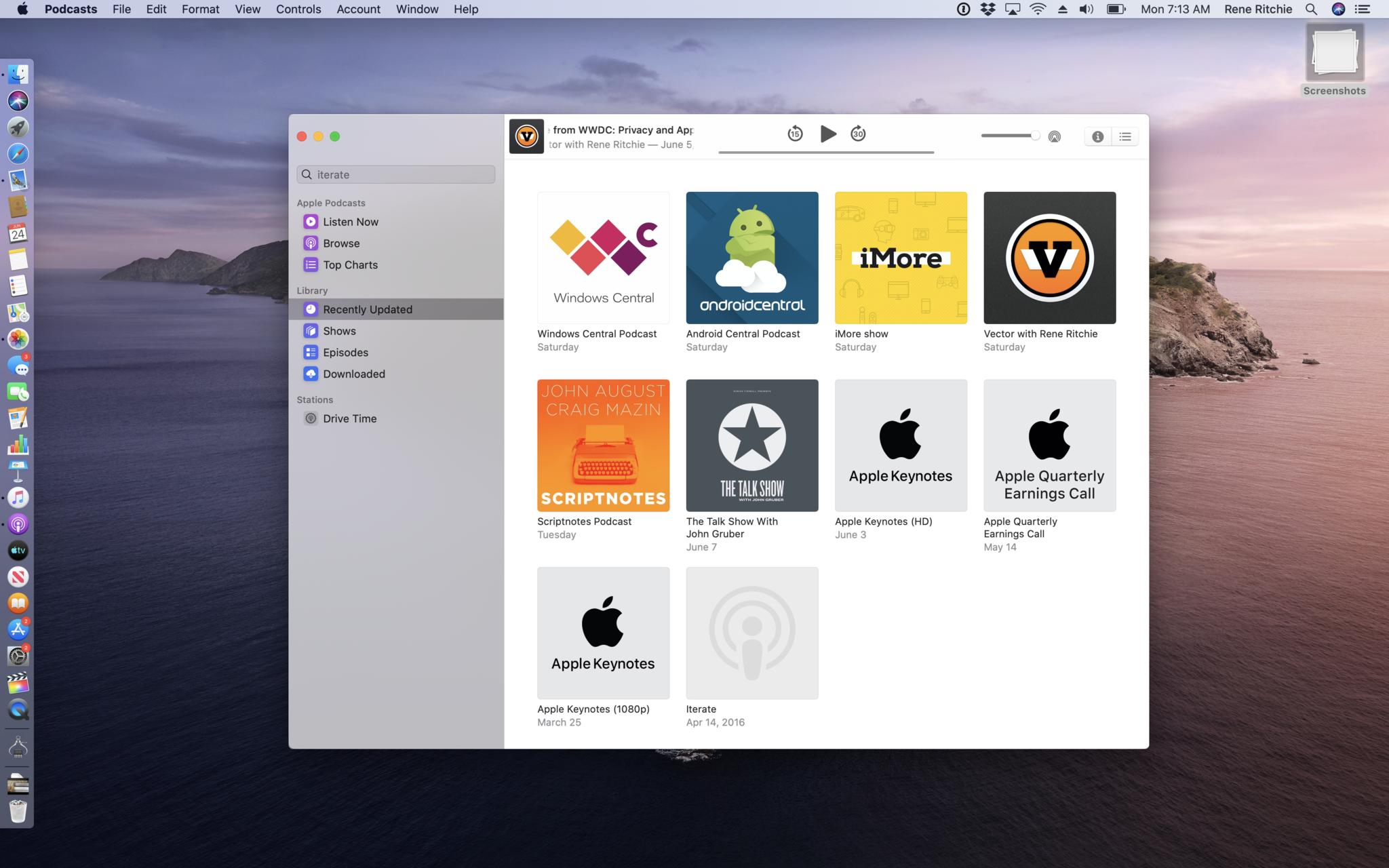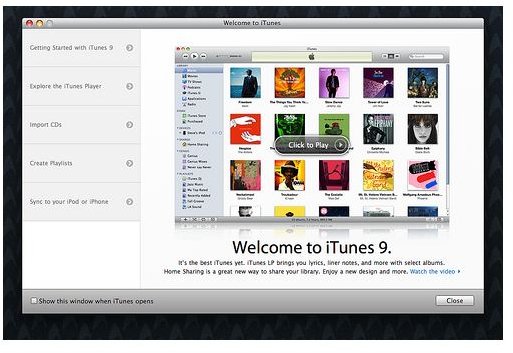- Itunes For Macos Version 10.15.6
- Itunes For Macos Catalina Version 10.15.2
- Download Itunes For Mac Latest
Support for Text-to-Speech on devices running Mac OS X 10.10 or above Supports reading with Split View on devices running Mac OS X 10.11 or above. Version History. Kindle for Mac 1.29: This update includes stability. OS X version 10.10.5 or later; 400MB of available disk space; Apple Music, iTunes Store, and iTunes Match availability may vary by country; Apple Music trial requires sign-up and is available for new subscribers only. Plan automatically renews after trial.
Today’s release of macOS Catalina may reduce complaints from Mac iTunes users regarding Apple’s famously bloated media management and playback app, but for Windows users, the misery appears set to go on indefinitely. Sixteen years after iTunes debuted on PCs — a gesture then-Apple CEO Steve Jobs likened to “giving a glass of ice water to somebody in hell” — the app shows no sign of leaving Microsoft’s platform, where it’s continuing to infuriate PC customers.
While Apple officially updated its iTunes webpage today to steer Mac users toward macOS Catalina, which deprecates iTunes in favor of Finder-based device backup tools and separate media apps, Windows users are presented with three choices: standard 64-bit and 32-bit Windows apps, plus a Microsoft Store version built for Windows 10 S mode devices. While the former two links lead directly to iTunes downloads, the Microsoft Store includes an app landing page with mostly negative reviews: 46% of responding Store users rated iTunes with only one star.
User complaints run the gamut from a lack of regular updates to problems with stability, settings, multi-device synchronization, and creating ringtones. “This is a nightmare,” says one highly ranked review from September. “It’s glitchy, it might scroll, it’ll probably crash. If it responds it’s slow. And it’s largely by design. Don’t bother to complain, they don’t care. They’re not going to fix this — they want you to buy a Mac.”
More recent gripes from users blast iTunes for problems with app activation and bricking connected devices during updates, requiring visits to the Apple Store. Multiple reviewers note their disbelief that the app works so poorly — the opposite of Apple’s early intent with iTunes, which was supposed to help lure PC customers to try Apple devices by demonstrating their ease of use and reliability compared with the Windows environment. Instead, Microsoft Store users claim to be giving up their Apple devices and services such as Apple Music as a result of bad iTunes interactions.
Whether such complaints are wholly valid, partially due to third-party (antivirus) software, or just sour grapes is up for debate. But Apple clearly hasn’t abandoned the Windows platform despite claims of irregular updates. The current version of iTunes is 12.10.0.7, which debuted in September 2019 to support updating of iPhones, iPads, and the seventh-generation iPod touch to iOS/iPadOS 13. Moreover, it’s not exactly surprising that the app features artwork (shown above) of a MacBook Pro rather than a rival machine such as a Microsoft Surface laptop or tablet.
iTunes might continue to be updated on Windows well past its expiration date on Macs. Apple said back at WWDC that it was keeping iTunes around for Windows, and had nothing to announce regarding the end of support for that platform. That said, Apple has already released an Apple Music app for Android and permitted an Apple TV app to debut on Samsung Smart TVs, which means that PC users might see iTunes split up simply to generate Windows demand for Apple subscription services — Apple Music, Apple TV+, Apple News+, and Apple Arcade in declining order of likelihood.
Until and unless that happens, Apple is continuing to support iTunes for Windows with a dedicated discussion community, plus an archive of legacy releases for pre-Windows 10 machines. And rather than killing the Mac app outright, it’s keeping iTunes 12.8.2 and at least one older version alive as skeletons for users who can’t or don’t want to upgrade to macOS Catalina. Those versions run on macOS 10.10 Yosemite and newer releases prior to Catalina.
The latest version of iTunes now comes installed with macOS Mojave. Upgrade today to get your favorite music, movies, and podcasts. iTunes is also where you can join Apple Music and stream — or download and play offline — over 50 million songs, ad‑free.
/cdn.vox-cdn.com/uploads/chorus_image/image/63941493/applepodcasts.5.jpg)
You can always download iTunes 12.8 for previous versions of macOS, as well as the application for Windows.
Hardware:
- Mac computer with an Intel processor
- To play 720p HD video, an iTunes LP, or iTunes Extras, a 2.0GHz Intel Core 2 Duo or faster processor is required
- To play 1080p HD video, a 2.4GHz Intel Core 2 Duo or faster processor and 2GB of RAM is required
- Screen resolution of 1024x768 or greater; 1280x800 or greater is required to play an iTunes LP or iTunes Extras
- Internet connection to use Apple Music, the iTunes Store, and iTunes Extras
- Apple combo drive or SuperDrive to create audio, MP3, or backup CDs; some non-Apple CD-RW recorders may also work. Songs from the Apple Music catalog cannot be burned to a CD.
Software:

- OS X version 10.10.5 or later
- 400MB of available disk space
- Apple Music, iTunes Store, and iTunes Match availability may vary by country
- Apple Music trial requires sign-up and is available for new subscribers only. Plan automatically renews after trial.
iTunes for Windows
Looking for Windows 32-bit? Download here
Hardware:
Itunes For Macos Version 10.15.6

- PC with a 1GHz Intel or AMD processor with support for SSE2 and 512MB of RAM
- To play standard-definition video from the iTunes Store, an Intel Pentium D or faster processor, 512MB of RAM, and a DirectX 9.0–compatible video card is required
- To play 720p HD video, an iTunes LP, or iTunes Extras, a 2.0GHz Intel Core 2 Duo or faster processor, 1GB of RAM, and an Intel GMA X3000, ATI Radeon X1300, or NVIDIA GeForce 6150 or better is required
- To play 1080p HD video, a 2.4GHz Intel Core 2 Duo or faster processor, 2GB of RAM, and an Intel GMA X4500HD, ATI Radeon HD 2400, or NVIDIA GeForce 8300 GS or better is required
- Screen resolution of 1024x768 or greater; 1280x800 or greater is required to play an iTunes LP or iTunes Extras
- 16-bit sound card and speakers
- Internet connection to use Apple Music, the iTunes Store, and iTunes Extras
- iTunes-compatible CD or DVD recorder to create audio CDs, MP3 CDs, or backup CDs or DVDs. Songs from the Apple Music catalog cannot be burned to a CD.
Software:

- Windows 7 or later
- 64-bit editions of Windows require the iTunes 64-bit installer
- 400MB of available disk space
- Some third-party visualizers may no longer be compatible with this version of iTunes. Please contact the developer for an updated visualizer that is compatible with iTunes 12.1 or later.
- Apple Music, iTunes Store, and iTunes Match availability may vary by country
- Apple Music trial requires sign-up and is available for new subscribers only. Plan automatically renews after trial.
Looking for other versions?
Looking for iTunes for Mac or PC?
Return to this page on your Mac or PC for the free download of iTunes
iTunes or Apple Music on your iOS device
The iTunes Store app and Apple Music app are already on your iPhone or iPad. Open the Apple Music app to start a free three-month trial* and stream 50 million songs with no ads.
Itunes For Macos Catalina Version 10.15.2
50 million songs on all your devices.
While you wait, try Apple Music
free on your other devices.
Expand your listening experience with Apple Music. If you’ve got an iPhone or iPad, Apple Music is already built in — just open the Music app and tap “Try it free.”
Download Itunes For Mac Latest
Listen to your favorite music ad-free on all your devices, online or off. Start your free three-month trial and cancel anytime.1*
If your other device uses Android, you can still get Apple Music.
Apple Music is also available for Android. Stream and download all the same music and videos.
